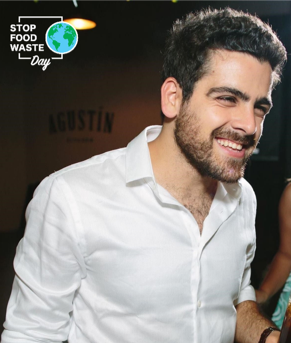5 Questions with Maen Mahfoud, Founder/CEO of Replate
1. What motivated your personal interest in sustainability and food waste reduction?
Growing up as a Syrian, I saw the effects of poor access to food nearly every day. After immigrating to California, I was disappointed to find similar disparities within San Francisco. I was inspired to build Replate after seeing a homeless man attacking a trash can in search
2. Can you share a story about a food waste hero who inspired you?
Arash Derambarsh. He is a local councilor who started the fight against food waste in Paris, France. His campaign against food waste ended with a law forcing French supermarkets to donate surplus food to charities. He is aiming for similar
3. What change have you made, personally, to be more mindful of food waste?
Using mason jars helps me cut down on my food waste because it forces me to take less food to work and allows me to eat out less. This results in less leftover food and enables me to take back my leftover food home for dinner or for the next day. Not to mention

4. What is one small change every person can make in their daily lives to make a big difference?
Order less. I believe the best way to impact food waste at the personal level is to train your mind to order less food or trick your brain not to order or shop for more food than necessary. One way to do this is not to go to the supermarket when you are hungry. We tend to order way more when we are hungry at that instant. If you are already at the supermarket and hungry, then grab a snack from the shelf immediately.
5. What will it take for the US to make food waste a priority?
This is challenging because the US is known for its consumerism. However, bringing the right innovators to work together collaboratively to 1). Show the impact of food waste on our environment and 2). significantly reduce food waste, can show that food waste is a big issue but also a solvable one. This will attract attention from major stakeholders, legislators





